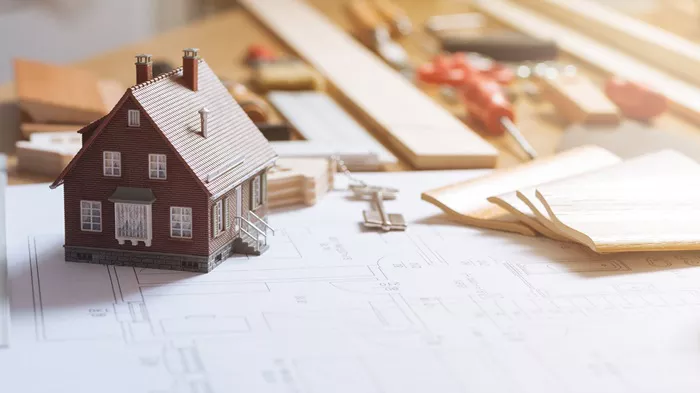Homeownership comes with its share of responsibilities and challenges, and plumbing issues can be some of the most frustrating. One common problem homeowners face is a leaking shower. This issue can lead to extensive water damage if not addressed promptly. Many homeowners wonder whether their home insurance will cover the costs associated with repairing a leaking shower and any resulting damage. This article aims to provide a detailed examination of this question, exploring various factors that influence insurance claims for plumbing issues, the claims process, and tips for effectively managing water damage in your home.
Understanding Home Insurance Coverage
What Is Home Insurance?
Home insurance is a type of property insurance that provides financial protection against damage to your home and personal belongings. It typically covers various risks, including fire, theft, vandalism, and certain types of water damage. Home insurance policies can vary widely in terms of coverage, exclusions, and limits, so it’s crucial for homeowners to understand their specific policy details.
Types of Coverage
Dwelling Coverage: Protects the structure of your home against covered perils.
Personal Property Coverage: Covers personal belongings, such as furniture and electronics, in case of theft or damage.
Liability Coverage: Provides protection against lawsuits for bodily injury or property damage that you or your family members may cause to others.
Additional Living Expenses (ALE): Covers living expenses if you need to temporarily relocate due to damage.
Water Damage Coverage
Water damage coverage can vary significantly between policies. Typically, home insurance covers sudden and accidental water damage, such as that caused by burst pipes or overflowing appliances. However, it may not cover gradual damage resulting from maintenance issues, such as a leaking shower that has gone unnoticed for a long time.
The Impact of a Leaking Shower
Causes of a Leaking Shower
Understanding the source of the leak is essential for determining insurance coverage. Common causes of shower leaks include:
Faulty Seals: Worn-out caulking or grout can allow water to seep through.
Pipe Damage: Cracks or corrosion in pipes can lead to leaks.
Showerhead Issues: Loose or broken showerheads may cause dripping or leaking.
Shower Pan Problems: A damaged or improperly installed shower pan can lead to water escaping.
Consequences of a Leaking Shower
A leaking shower can cause several problems, including:
Water Damage: Prolonged exposure to water can damage walls, floors, and ceilings.
Mold Growth: Excess moisture creates a breeding ground for mold, which can lead to health issues and further property damage.
Structural Damage: In severe cases, water damage can weaken the structural integrity of your home.
Increased Repair Costs: Delaying repairs can lead to more extensive damage and higher repair costs.
See also: Knowing Home Insurance Costs in San Francisco: A Full Guide
Home Insurance and Shower Leaks
Can You Claim for a Leaking Shower?
The ability to claim for a leaking shower depends on several factors:
Type of Leak: If the leak is sudden and accidental, it may be covered. For example, if a pipe bursts, causing immediate damage, you are more likely to have a valid claim.
Policy Exclusions: Most home insurance policies have specific exclusions for gradual damage or lack of maintenance. If the leak has been ongoing for some time, the insurer may deny your claim.
Documentation: Proper documentation of the damage and any maintenance efforts can support your claim. This includes photographs, repair estimates, and records of previous maintenance.
Policy Exclusions and Limitations
Most home insurance policies include exclusions related to water damage:
Gradual Damage: Damage that occurs over time due to neglect or lack of maintenance is typically not covered.
Flooding: Most standard home insurance policies do not cover flood damage. If the leak results in flooding, a separate flood insurance policy may be needed.
Sewage Backups: Damage from sewage backups may require a specific endorsement or separate policy.
Factors That May Affect Your Claim
Several factors can influence the outcome of your claim:
Policy Limits: Check your policy for coverage limits related to water damage. Some policies may have caps on how much they will pay for repairs.
Deductible: You will need to pay your deductible before your insurance kicks in. Consider whether the repair costs exceed your deductible.
Previous Claims: If you’ve made multiple claims in the past, your insurer may view you as a higher risk, potentially impacting your current claim.
Insurance Company Guidelines: Each insurer has specific guidelines for assessing claims. Familiarize yourself with your provider’s processes and requirements.
The Claims Process for a Leaking Shower
Steps to Take After Discovering a Leak
Assess the Damage: Determine the extent of the leak and document it with photographs and notes.
Stop the Leak: If possible, turn off the water supply to prevent further damage.
Notify Your Insurance Company: Contact your insurer as soon as possible to report the leak.
Gather Documentation: Collect all relevant documents, including photographs, repair estimates, and maintenance records.
Filing a Claim
Complete the Claim Form: Fill out the necessary forms provided by your insurer, detailing the circumstances of the leak.
Submit Supporting Documentation: Include photographs, repair estimates, and any other relevant documents with your claim.
Follow Up: Stay in touch with your insurance adjuster for updates on your claim status.
Working with Insurance Adjusters
Insurance adjusters will assess the damage and determine the validity of your claim. Be prepared to provide additional information or clarify details about the leak. An adjuster may also request to inspect the damaged area.
What to Expect During the Claims Process
Timeline
The timeline for processing claims can vary based on several factors, including the complexity of the claim and the insurer’s workload. Typically, you can expect:
Initial Contact: Your insurer should respond within a few days to acknowledge your claim.
Adjuster Visit: An adjuster will likely visit your home to assess the damage within a week or two.
Claim Decision: You should receive a decision on your claim within a few weeks, although complex claims may take longer.
Common Challenges
Homeowners may encounter challenges during the claims process, such as:
Denial of Claims: Insurers may deny claims based on exclusions or insufficient evidence.
Underpayment: Your insurer may offer a lower settlement than expected. It’s essential to understand your policy and negotiate if necessary.
Delays: Delays can occur if additional documentation or inspections are needed.
Preventing Shower Leaks
Regular Maintenance
Preventive measures can help avoid leaks and water damage:
Inspect Seals and Caulk: Regularly check and replace worn caulking around the shower and tub.
Monitor Water Pressure: High water pressure can strain pipes. Install a pressure regulator if necessary.
Inspect Pipes: Regularly check exposed pipes for signs of corrosion or damage.
Keep an Eye on Water Bills: Sudden increases in water bills may indicate hidden leaks.
When to Call a Professional
If you notice signs of a leak, such as water stains, mold growth, or unusual sounds, call a plumber immediately. Early intervention can prevent more significant issues down the line.
Conclusion
Claiming home insurance for a leaking shower can be a complex process influenced by various factors, including the nature of the leak, policy exclusions, and proper documentation. Understanding your home insurance coverage, the claims process, and preventative measures can help you navigate potential plumbing issues with confidence.
If you find yourself facing a leaking shower, take prompt action to mitigate damage and communicate effectively with your insurance provider. While not all leaks are covered by insurance, knowing your rights and options can save you time, money, and stress. By being proactive in maintenance and understanding your coverage, you can protect your home and ensure it remains a safe and enjoyable space for years to come.





















